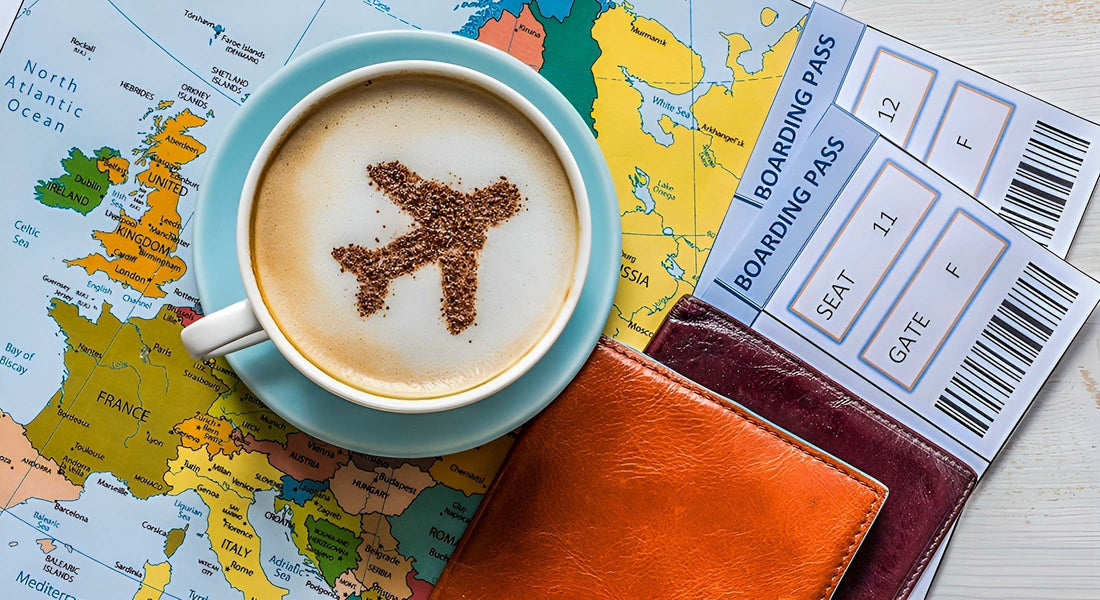
Embracing the Unknown: The Allure of Expatriate Life & Cultural Immersion
Share
I’m sure most people remember that feeling, the one that compels you to get as far away from hometown familiarity as possible. It doesn’t matter where you come from. For me, it was the heart of the Texas Hill Country. A town lush with Bald Cypress, Anacua, Cedar Elm, and practically every classification of Oak. A river runs through it, bordering downtown Main Street to the south. Family-owned businesses line both sides of restaurants, microbreweries, antique stores, and cafés. The city square borders the north end of Main Street. My family owns six acres just south of town. At the time, the population was under 10,000. It’s a proverbial paradise. And I couldn’t wait to leave.
There’s a psychological urgency in youth, a need to take flight, to understand who we are without the influence of the people who shaped our adolescence. That yearning doesn’t always fade. For some, it returns later in life, after the trials have accumulated. Divorce. Job loss. Middle-aged. The need to escape resurfaces, but it’s different. It’s existential. It’s not just about geography; it’s about shedding cultural standards we never felt comfortable with. That’s where the expats come in.
Expatriates—people who choose to live outside their native country—aren’t just chasing novelty. They’re drawn to the allure of new cultures, different opportunities, and a way of life that feels less prescribed. It’s an interesting concept. People are so dissatisfied with their routine that they’re willing—eager, even—to hurl themselves into situations that are foreign, unpredictable, and impossible to foresee.
But discontent isn’t always about routine. Often, it’s something deeper. A fracture. A reckoning. Something that needs to be addressed internally, not geographically. Still, there are rewards to living as an expat, even if the reasons aren’t pure. Immersing yourself in a different culture opens your mind, expands your thinking, and even if you return, you return changed.
The places where American expats land are telling. The Philippines. Australia. UAE. Spain. Thailand. Cultures that have, in some ways, opened themselves to Western influence, but still retain their own rhythm. Places that celebrate leisure. That invites a broader cultural identity. Many Americans move overseas for work flexibility, affordable healthcare, lower cost of living, or a shift in political climate. The reasons are obvious. The desire to explore—to live differently—is growing. I’ve considered building a life abroad. The idea still appeals. I think about it weekly.
The allure of escape is powerful. But it’s not just about leaving, it’s about arriving. About immersing yourself in something unfamiliar and letting it reshape you. The psychological and emotional rewards are real. Living abroad can broaden your perspective, challenge your assumptions, and foster personal growth.
David Foster Wallace once wrote, “The really important kind of freedom involves attention, and awareness, and discipline, and effort, and being able to truly care about other people and what they think.” That kind of freedom isn’t found in a passport stamp. It’s cultivated. Whether your move is permanent or temporary, living abroad offers a chance to rediscover that freedom and yourself.
When the pull toward the unknown tugs at you, don’t ignore it. Don’t dismiss it as indulgence. It might be the beginning of something essential. Something clarifying. Life as an expat isn’t just a change of scenery. It’s a change of self.